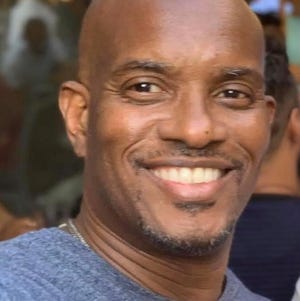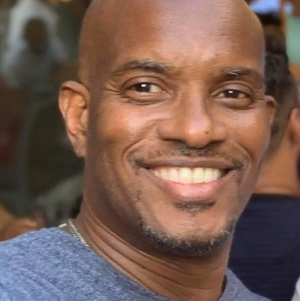
1981 was a magical year for me. Alexander Godunov and Judith Jamison performed “Spell” as guest performers at Alvin Ailey American Dance Theater’s opening night gala, DREAMGIRLS was on Broadway, Diana Ross had a hit called “I’m Coming Out,” and Tom Browne had an R&B hit called “Thigh High” (Grip Your Hips and Move). I cheered as a University of Oklahoma cheerleader in the Sun Bowl as OU beat the University of Houston 40–14. Life was good. I still believed in a world with endless possibilities. However, by the summer of 1981, I’d heard about an illness that was primarily affecting white and Black gay men in L.A., New York City and San Francisco. The sickness, then called GRID (Gay-Related Immune Deficiency Syndrome) was infecting and killing gay people. Many Black gay friends believed we had no worries if we did not sleep with white men. They were wrong.
In 1981, Ronald Reagan was the U.S. president. Reagan did not utter the words AIDS until four years into his administration. Poor leadership and a deadly epidemic are a catastrophic combination. Imagine HIV/AIDS in a Trump administration. Reagan’s silence and neglect killed many Americans. By 1985, Rock Hudson had died, and Elizabeth Taylor had created AMFAR and become an international AIDS ambassador. The life span of a person diagnosed with HTLV III, now referred to as HIV-1, during that period was 18 months. HIV changed the trajectory of my life. I had just begun to live. My house and everything around me were on fire.
After 40 years of an HIV epidemic and HIV fatigue, the landscape has not changed much. Black gay men are still overrepresented in the Centers for Disease Control and Prevention’s Epidemic Surveillance Data. Organizations are still facing the challenges of stigma, bias and other social inequities. During the 1980s and 1990s, we represented about 35% of new infections. According to a CDC brief, “published research does not provide definitive answers about why new HIV infections among young, Black/African American gay, bisexual, and other men who have sex with men (MSM) have increased.” This statement is problematic. They are supposed to fund “effective” HIV prevention strategies. The CDC still does not know after 40 years why infections among Black gay men have increased? This lack of knowledge is a limitation of social science. I also believe it’s a governmental and a community failure.
Dr. Joseph E. Lowery, co-founder and president emeritus of the Southern Christian Leadership Conference, often said, When America gets a cold, Black America gets pneumonia. What has changed in 40 years? Not much. Structural inequities are still plaguing Black and brown communities. Many organizations continue to suffer from a lack of social and political capital. COVID-19 has effectively and efficiently demonstrated what many who live in my community already knew. There are still two Americas, both separate and equal, one for the rich and one for the poor. More succinctly, it might be said, two Americas: the served and the underserved; or the served, and the ignored.
I am happy HIV/AIDS is no longer listed as a top 10 disease by the World Health Organization (WHO). Pharmaceutical therapeutics continue to extend the lives of those who are living with HIV, which is now considered a chronic and treatable disease. However, the structural and human inequities have not improved the outlook for Black gay men. We are still overrepresented in the contemporary HIV/AIDS health statistics and underrepresented at the local and national leadership levels. I see glimmers of individual and institutional successes, and that gives me hope for the complete eradication of HIV/AIDS. Here’s to hoping we don’t have to wait another 40 years for a complete cure.
Maurice Franklin is former executive staffer of the Southern Christian Leadership Conference. He was director of SCLC Southern HIV/AIDS Faith Based Education Strategies. He has been at the epicenter of the modern Black Gay Lesbian, Bisexual and Transgender social justice movement. Franklin has completed an upcoming social equity article that will be published in “Lessons in Social Equity: A Case Study Book.”








